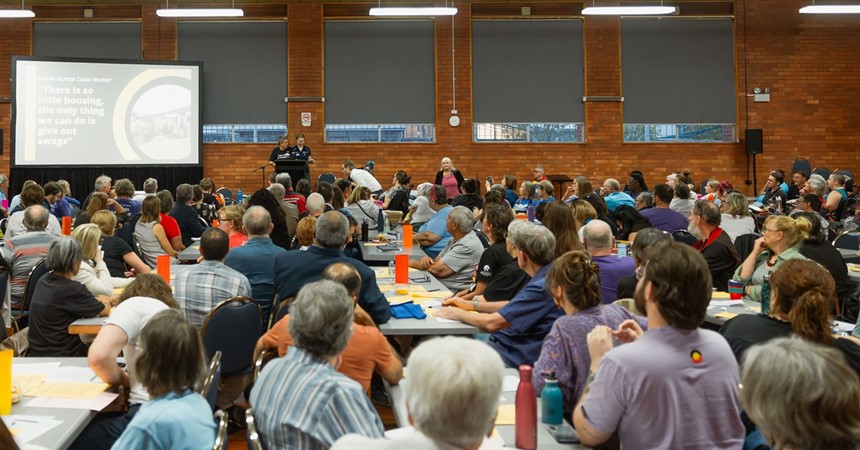The readings for the week are about seeking and cherishing wisdom. I share with you the First Reading for Sunday from the Book of Wisdom, 6:12-16.
Wisdom is bright, and does not grow dim.
By those who love her she is readily seen,
and found by those who look for her.
Quick to anticipate those who desire her, she makes herself known to them.
Watch for her early and you will have no trouble;
you will find her sitting at your gates.
Even to think about her is understanding fully grown;
be on the alert for her and anxiety will quickly leave you.
She herself walks about looking for those who are worthy of her
and graciously shows herself to them as they go,
in every thought of theirs coming to meet them.
As indicated last week, I will now share with you some of the wisdom coming from Part II of the Synthesis Report, A Synodal Church in Mission, from the XVI Ordinary General Assembly of the Synod of Bishops.
The heading for Part II is All Disciples, All Missionaries.
It began with Church is Mission which was then followed by:
- Women in the life and Mission of the Church
- Consecrated Life and Lay Associations and Movement: A Charismatic Sign
- Deacons and Priests in a Synodal Church
- The Bishop in Ecclesial Communion
- The Bishop of Rome in the College of Bishops
What was not lost on me is that of the order provided in the document. It begins with the ‘all’ and works its way towards the ‘some’ and then the ‘one’:
Indeed, synodality articulates symphonically the communal ("all"), collegial ("some") and personal ("one") dimensions of the Church at the local, regional and universal levels. In such a vision, the Petrine ministry of the Bishop of Rome is intrinsic to the synodal dynamic, as are the communal aspect that includes the whole People of God and the collegial dimension of the exercise of Episcopal ministry. (para. (a) Section 13)
Throughout this part of the Report, there is a sense of the mutuality of relationships and the co-responsibility of all of us as missionary disciples. I was impressed by the paragraph about the role of the bishop. Sharing this with you on the eve of the second anniversary of Bishop Bill Wright’s death, I remember him while praying for Bishop Michael Kennedy, that he may live out this ministry of unity:
The bishop is, in his Church, the one primarily responsible for proclaiming the Gospel and for the liturgy. He guides the Christian community and promotes pastoral care of those experiencing poverty and defence of the most vulnerable. As the visible principle of unity, he has, in particular, the task of discerning and coordinating the different charisms and ministries sent forth by the Spirit for the proclamation of the Gospel and the common good of the community. This ministry is realized in a synodal manner when governance is accompanied by co-responsibility, preaching by listening to the faithful People of God, and sanctification and celebration of the liturgy by humility and conversion. (para. (b), Section 12)
In the next paragraph it speaks of the bishop being called to be an example of synodality for all, that is of promoting mutuality between “all, some and one”.
The “one” Episcopal ministry values the participation of "all" the faithful, through the contribution of "some" who are more directly involved in discernment and decision-making processes. The conviction with which the bishop himself adopts a synodal approach and the style by which he exercises authority will influence decisively how priests and deacons, lay men and women, and those in consecrated life, participate in the synodal process. (para. (c), Section 12)
All are called to place their “charisms at the service of communion and mission in local churches, augmenting existing paths towards holiness with a presence that is prophetic. (para. (f), Section 11)
Throughout Part II, there is a call for the need of a spiritual conversion as the basis for effective structural change that has its foundations in synodality.
Our synodal path shows the need for relational renewal and structural changes. In this way we can better welcome the participation and contribution of all – with lay and consecrated women and men, deacons, priests, and bishops – as co-responsible disciples in the work of mission. (para. (g), Section 9)
We are being reminded that the Church ‘is mission’ which is shared by all the baptised. We are called to witness to Jesus Christ in our daily life and to explicitly share the faith with others.
For me this service to God’s mission was evident when over 200 people gathered last Wednesday in the Southern Cross Hall at an Assembly of the Hunter Community Alliance. Those who gathered registered their concern for our civil society in the Hunter. People shared their stories of homelessness, housing stress, housing affordability, concerns for our environment and climate change, and energy transition. Many of those who gathered were people of faith who are motivated to live out God’s mission in the here and now. They are doing this by serving the community with others who care for the common good.
Please grant us the wisdom to do good as disciples on mission.
Follow mnnews.today on Facebook.

